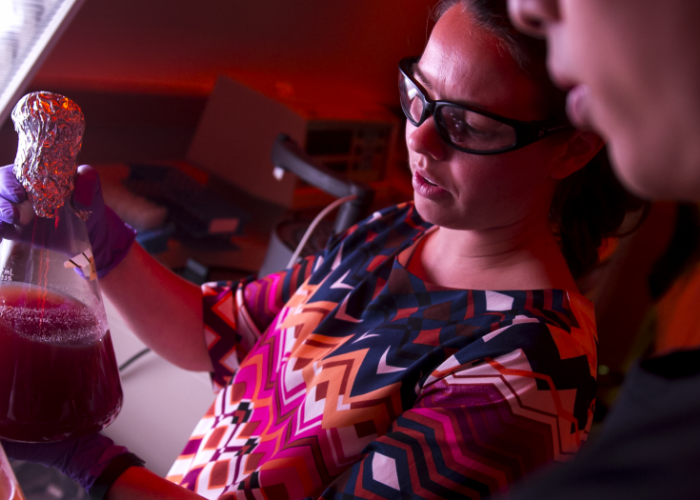

The Ph.D. program in the Department of Chemistry offers wide opportunity and unusual flexibility for advanced study and research and is designed to encourage individuality, independence, and excellence in students.
Most students select their research advisor by the winter quarter of their first year and are engaged in research by spring. The department has neither a system of cumulative examinations nor a written major examination. There are relatively few course requirements and great flexibility in the course of study. The barriers for research between departments are low. Students in the Department of Chemistry often take courses in other departments and can even earn a degree in chemistry for research that has been done under the supervision of a member of another department. Students are encouraged to fashion special programs of study under the guidance of the faculty.
Year 1: On entering, graduate students take basic examinations in the fields of inorganic, organic, and physical chemistry in order to identify any deficiencies and assist with course selection. In the first year, students must satisfactorily complete six graduate-level courses in the Department of Chemistry or approved courses in other departments with a B average. The department organizes presentations from faculty during the fall and opportunities for lab rotations are available. Most students select their research advisor by the winter quarter of their first year and are engaged in research by spring. All candidates for the Ph.D. are required to participate in some form of teaching, typically serving as a teaching assistant for three quarters.

Year 2: Qualified students then prepare for the Ph.D. candidacy examination, which must be taken before the end of the fifth quarter in residence, normally in October. This examination is based on the student's written research prospectus and scientific papers selected by the examining committee. The student presents the research prospectus to the committee and must be prepared to discuss the relevant chemical literature, progress-to-date, plans for future work, and the relationship of the research to other chemical problems. Based on the recommendations of the candidacy examining committee and the student's academic record, faculty vote on admission to candidacy.